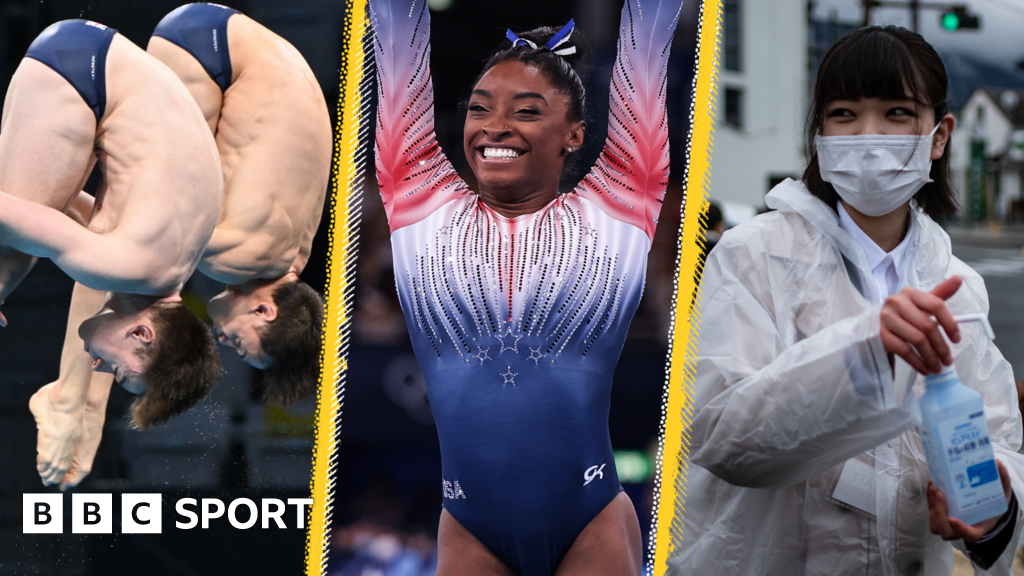The success of Japan in the medal table also seems to have helped mellow some of the anger towards the event. On Friday night the protesters were still outside the athletics stadium, but it was a noticeably smaller, less vocal group.
But many critics insist it was the multi-billion dollar broadcast contracts that the Olympic movement relies on that were the real reason for its refusal to countenance another delay or cancellation, and some believe this will mean more scrutiny of the IOC going forward. Perhaps it will also make it harder to attract bidders, even if the next three hosts of the summer Games are now secured up to 2032.
With much of Tokyo society carrying on as normal despite the state of emergency, at times it was hard to understand the need for spectators to be banned, especially from the large, outdoor venues.
Organisers however can point to the fact that there has only been 438 positive cases from people affiliated with the Games, despite tens of thousands of visitors from overseas. The sports industry will now hope this shows that with strict protocols, the virus can be kept at bay, even at an event as complicated and sprawling as this.
Equally, while some highly unfortunate athletes have been prevented from competing, fears of a major outbreak in the athletes village, with competitions ruined, have proved unfounded.
And yet, outside of the Olympic bubble, the reality is that since officials and athletes started arriving in Tokyo last month, positive cases in Tokyo have surged from around a thousand a day to a record high of more than five thousand on Thursday.
Organisers insist there is no evidence linking this to the Games, but others believe the fact the event was on has led to people relaxing and being less disciplined in their precautions.
With the Japan government asking Covid patients with moderate symptoms to isolate at home instead of the increasingly over-stretched hospitals, the decision to continue with the Games could still come back to haunt the country if cases continue to surge over the coming weeks.
Tokyo 2020 meant scrutiny of the IOC for other reasons too.
The issue of athlete welfare was raised by the extreme heat that competitors were expected to contend with. The plight of Belarusian sprinter Krystina Timanovskaya, whose coaches allegedly attempted to force her to leave the Games in Tokyo, highlighted the treatment of athletes in Belarus, and whether the IOC should do more to stand up for them.
The participation of weightlifter Laurel Hubbard, the first openly transgender athlete to compete in a different gender category to that which they were born at an Olympics, was another milestone in one of sport’s most contentious issues, intensifying debate over the IOC’s transgender policy.
And whether it was Simone Biles raising awareness of mental health and the pressure that some athletes struggle to cope with, Holly Bradshaw talking about body-shaming, Hannah Mills about climate change, US shot-putter Raven Saunders, whose cross-wristed gesture on the podium supported racial and social justice, or Ross Greenbank, who raised concerns over Russian doping, the sense was that the importance of these Games went way beyond medals.



